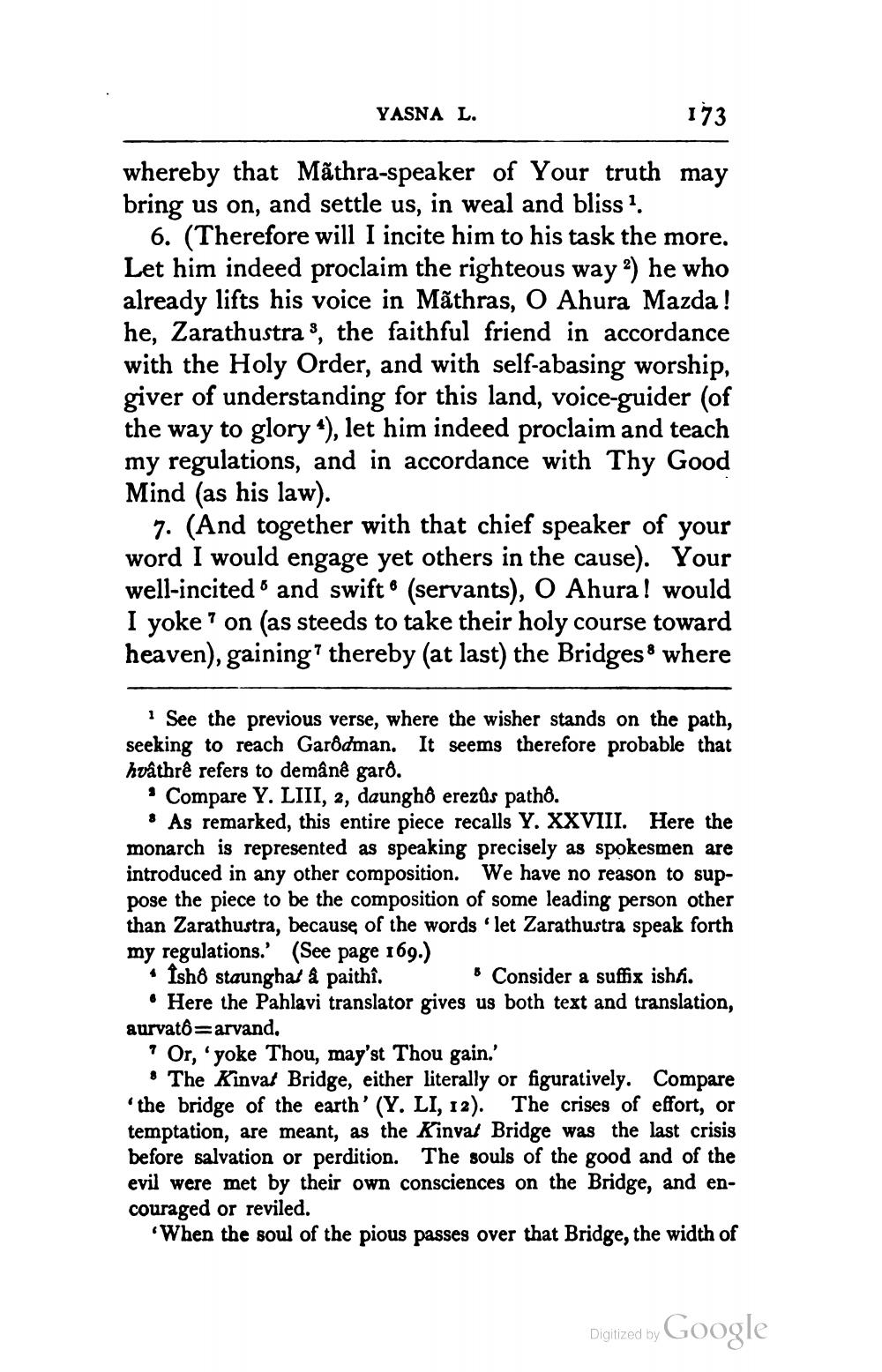________________
YASNA L.
173
whereby that Mấthra-speaker of Your truth may bring us on, and settle us, in weal and bliss 1.
6. (Therefore will I incite him to his task the more. Let him indeed proclaim the righteous way 2) he who already lifts his voice in Măthras, O Ahura Mazda! he, Zarathustra ș, the faithful friend in accordance with the Holy Order, and with self-abasing worship, giver of understanding for this land, voice-guider (of the way to glory 4), let him indeed proclaim and teach my regulations, and in accordance with Thy Good Mind (as his law).
7. (And together with that chief speaker of your word I would engage yet others in the cause). Your well-incited and swift (servants), O Ahura! would I yoke? on (as steeds to take their holy course toward heaven), gaining thereby (at last) the Bridges & where
See the previous verse, where the wisher stands on the path, seeking to reach Garðdman. It seems therefore probable that hvathrê refers to demânê garð.
• Compare Y. LIII, 2, daunghð erezūs pathô.
& As remarked, this entire piece recalls Y. XXVIII. Here the monarch is represented as speaking precisely as spokesmen are introduced in any other composition. We have no reason to suppose the piece to be the composition of some leading person other than Zarathustra, because of the words 'let Zarathustra speak forth my regulations. (See page 169.) • Isho staunghat & paithî.
Consider a suffix ishi. . Here the Pahlavi translator gives us both text and translation, aurvato=arvand,
? Or, yoke Thou, may'st Thou gain.'
• The Kinvat Bridge, either literally or figuratively. Compare 'the bridge of the earth' (Y. LI, 12). The crises of effort, or temptation, are meant, as the Kinvat Bridge was the last crisis before salvation or perdition. The souls of the good and of the evil were met by their own consciences on the Bridge, and encouraged or reviled.
"When the soul of the pious passes over that Bridge, the width of
Digitized by
Digitized by Google




